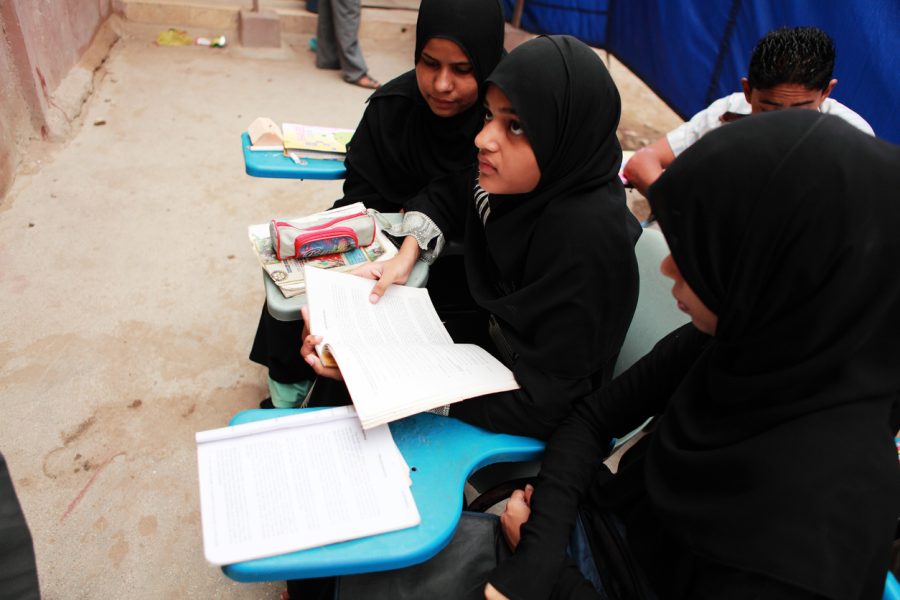
Karnataka hijab ban left students feeling like criminals: PUCL report
Following the ban and media hoopla, Muslim women students are facing 'social boycott, rape threats, intrusive surveillance, and being outed on social media'

The Karnataka government failed to protect the fundamental right to education guaranteed by the state without discrimination, according to an interim report by the Karnataka unit of the People’s Union for Civil Liberties (PUCL) on the hijab ban in the state.
“The hijab ban on Muslim students in Karnataka made a negative impact on their right to education. Also, the environment created after the ban at the colleges made them feel like criminals and to have a feeling of being deprived of their very right to education,” the report said.
The findings in the report on the ‘Impact of hijab ban in Karnataka’s educational institutions’ was submitted to the state government. The report comes at a time when the Supreme Court is hearing petitions challenging the hijab ban in Karnataka.
Also read: Hijab row: ‘Right to dress will include right to undress?’ SC remarks at hearing
The PUCL team visited several places and spoke to many women students to learn about their experiences and concerns and the report is an outcome of the exercise.
PUCL details incidents
On many campuses, viral videos on social media were used to shame and harass students. In the rural Udupi district, one student told the team, “One of my friends had shared her photo without the hijab with her best friend, who posted it on social media. My friend was so upset that she went into depression and was admitted to hospital,” she said. As per the report, “Rape threats are appearing on social media.”
The report also makes a note of other incidents faced by the students such as police shooting videos of students entering and leaving the college from outside the principal’s office. Mediapersons even entered the house of a student and took pictures of her.
The students said the interim High Court order affected them — it was scary for them to see police forces outside the college and it made them feel like criminals, the report said.
The PUCL has also detailed the incident concerning a young Muslim BCom student, who drove a bike up to her college campus and then walked fearlessly past a baying crowd of saffron shawl-wearing bullies on her campus.
Human rights violations were completely ignored by the colleges, the report claimed, be they harassment of students by the media on campuses, curtailing their right to dissent, harassment of women students by other students and outsiders, or creation of a hostile environment by saffron shawl-wearing protesters.
Careers disrupted
For most hijab-wearing students who missed writing their exams this year, the immediate concern is about appearing in the exams, resuming their education and making plans for further studies. Given the communal targeting of Muslim students, both within the campus and outside, they are facing constant harassment, insult and humiliation, the report said. There is increasing hostility from the college administration as well in matters such as withholding the issuance of certificates and other important documents like practical exam records and report details, it added.
Many students shared with PUCL their fear that their college managements are determined to impose more rigid restrictions on them. Muslim women students showed a high degree of motivation to excel in education by opting for professional fields and promising careers. They are seeking the freedom to access new fields of professional education such as medicine, engineering, management, etc, the report said. But, it added, Muslim women students are being driven to make a cruel choice — between the hijab and education.
According to the report, following the hijab ban, Muslim women students are facing social boycott, threats (including rape) as well as intrusive surveillance, and they are being ‘outed’ on social media. For these students, the loss of contact and friendships with fellow students from other communities has engendered a deep sense of isolation and depression. It has also caused a setback to their social advancement.
Being forced by the hijab restriction into studying only in Muslim institutions is leading to a feeling of ghettoization, the report said. It also restricts their choices of accessing a wider range of educational opportunities and fields of employment.
No protection by college
“Appalling scenes of girl students being physically pushed out of educational campuses have emerged since the issue broke out. This constitutes an unconscionable violation of the right to education. It is apparent that Muslim women in this instance are gravely disadvantaged by the unreasonable barriers to their education that have been placed by the state,” the report pointed out.
Deputy Directors of Pre-University Education (DDPU) in different districts seemed to have been acting on directions from above and provided no form of protection for the girl students affected by the ban. The rules were implemented forcibly without any concern for the affected party. Instructions were either given orally or through WhatsApp, making it hard for students to contest or appeal decisions made regarding their education, the report explained.
Also read: Karnataka hijab row: Religious right is fine, but what about school dress code, asks SC
The PUCL said that college authorities often turned draconian and threatening towards the women students, and, in some cases, towards parents as well. Most administrators the team spoke to felt that their role was limited to implementing the new rules. In some cases, they felt, it was important to punish or reprimand the students for what was commonly understood as “breaking the law”.
Police presence on college campuses effectively militarised educational spaces and created a hostile environment for women students. Officials focused on the implementation of the ban on hijabs without any regard for ensuring the safety and security of the students who were facing harassment and other forms of hostility, said the report.

